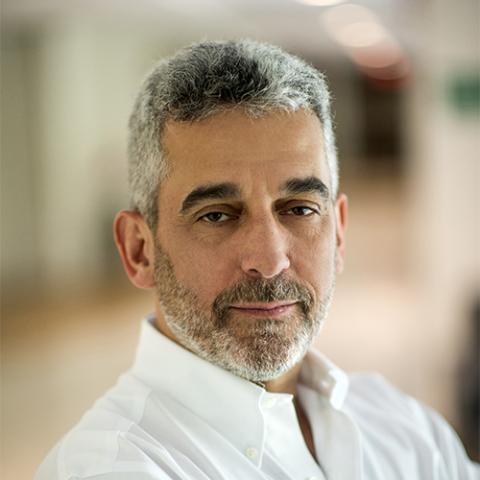"The United States and our partners are not seeking regime change in Syria," John Kerry said in Moscow this week. The announcement that the White House is fully in line with the position of Syrian president Bashar al-Assad's Russian and Iranian sponsors caught some by surprise. Others argue that it's the second time the White House has failed to enforce a red line regarding Syria. Just like the president said it would change his calculus if Assad used chemical weapons, Obama said in August 2011 that Assad should step aside. However, when Obama didn't blink after Assad had slaughtered his first 100,000, White House policy was pretty clear.
Remember that a bipartisan foreign policy consensus, including senior members of his own cabinet, advised Obama of ways to bring Assad down. And the president balked. Obama's foreign policy priority was to get a nuclear deal with Iran and feared that taking an active role in toppling Assad would push the Iranians away from the table. In exchange for the deeply flawed Joint Comprehensive Plan of Action, the White House has sat by idly while Assad opened up a massive war in the center of the Middle East that has put Iran on the border of several American allies, allowed Russia to solidify its position in the eastern Mediterranean, and given rise to a refugee crisis that threatens to destabilize Europe. From Obama's perspective, this serves American interests.
The White House and Russia, said Kerry, "see Syria fundamentally very similarly." It's about time Kerry admitted it. For several years now the White House has hid behind Russia, blaming Moscow at the U.N. and elsewhere for blocking actions against Assad, when in fact Obama was simply using the Russians to veto by proxy. Administration officials chastised Assad and allies for their depredations, their war crimes, torture, rape, murder, mass murder, chemical weapons used against civilians, children, barrel bombs dropped on neighbors. For all their rants at the U.N., their social media tantrums, their anonymous quotes to the press, all they did was highlight the White House's complicity with Assad's crimes. Now it's all out in the clear, because Kerry came clean, the White House finally owned it.
And indeed Obama does own it, for it will be a permanent stain on his legacy. The fate of the nuclear deal he prioritized over helping to topple Assad has an uncertain future. Perhaps, as Obama seems to hope, the JCPOA really will bring moderates to power in an Iranian regime that has sustained Assad's killing machine. Or maybe the nuclear deal will simply ensure an Iranian nuclear breakout within 15 years, as Obama himself has explained. There's no guessing about Syria. The numbers are plain. The number of Syrians killed, wounded, displaced because of Assad's war are all hard facts.
Also clear are the strategic consequences of the administration's policy. Iran and Hezbollah are working to open up a second front against Israel on the Golan Heights. Overturning half a century of U.S. Middle East policy, the White House has allowed Russia to entrench itself in the region. Russia and Turkey are one mishap away from a shooting war. In its phony campaign against the Islamic State, the White House has enlisted the assistance of an offshoot of the Kurdistan Worker's Party, a U.S.-designated foreign terrorist organization at war with NATO member Turkey. The interests of traditional American allies in the Persian Gulf, led by Saudi Arabia, are sacrificed to Iran's expansionist project. The region's Sunni majority is in open rebellion against the Iranian axis that the White House has buttressed with the JCPOA. But as I say, at least Kerry is now open about it. It's time for more light.
The Syrian war is not going away when Obama leaves office next year. Indeed, it's likely that a conflict that has steadily grown over the last four plus years to include even more actors, like Russia, may get even worse. Worse, even as it is already the young century's most dire humanitarian crisis, even as it already represents a major blow to American interests and those of our allies, in the Middle East and now Europe, too.
More light means seeing through the opportunism of the administration and its supporters who criticized Republican legislators and presidential candidates rightly concerned about the threat to the security of the U.S. homeland that the war's refugees may represent. The real conversation then is how to stop the refugee crisis. Is a buffer zone, or no-fly zone still feasible? Is it possible to work with Vladimir Putin who has positioned Russian fighter planes in Syria, or is he an obstacle that has to be gotten around, or knocked down?
More light also illuminates the choices Republican candidates have put forward. Sen. Ted Cruz and Sen. Rand Paul think that Assad's survival is better for America than what they see as the alternative, the Islamic State. However, it's unlikely that ISIS is capable of managing what neither Assad, nor Iran, nor even Putin has proven capable of—controlling all of Syria. Moreover, it's the job of the president to create alternatives, and realize them. The next president needs to bring light to the Syrian conflict. This isn't about an argument over nation building or isolationism, or who sees things most like our ally Israel. Rather, it's about protecting and advancing American interests in tandem with American allies. It's about restoring American leadership in the world.













